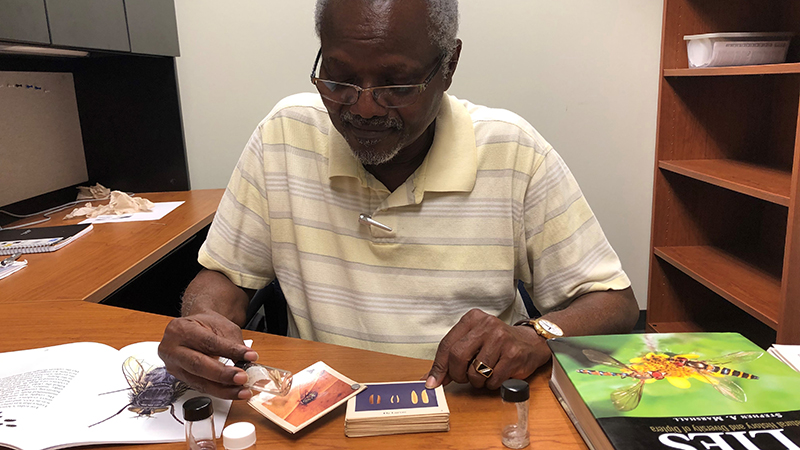
By Ronica Stromberg
John Obafunwa, a University of Nebraska-Lincoln doctoral student, accepted an appointment as the director-general of the Nigerian Institute of Medical Research, starting July 24, 2024.
The 66-year-old was working on his doctorate in the School of Natural Resources when the president of Nigeria, Bola Tinubu, appointed him to the post. Obafunwa already held medical and law degrees and had worked as an anatomic and forensic pathologist around the world. He said in July he plans to finish his classes online and graduate in spring 2025 while also directing the institute.
"I'm looking forward to seeing what I can contribute to enhance medical research within the system, without losing sight of my aspirations or goals in terms of being in this program here," he said. "I see it, to some extent, as a kind of distraction, but let me see what I can do to make that contribution and eventually make my final exit."
As the director-general, Obafunwa now will oversee the institute’s medical units and their directors, conduct research and teach classes. He specializes in anatomic pathology, diagnosing patient diseases through laboratory work, and forensic pathology, determining cause of death of a person through examining the corpse and death site.
At Nebraska, he has been preparing his dissertation on the use of entomology and taphonomy in determining the post-mortem interval. Forensic pathologists sometimes use entomology, the study of insects and their life cycle, to help pinpoint the time of death of a body. Similarly, taphonomy, the study of how bodies decompose and fossilize, can also help in determining time of death.
Obafunwa said he had received exposure to the various specialties of forensic science while studying in the United Kingdom, but his Nebraska studies further opened his eyes.
"It's like a brain reset that certain information you have, which you now discover that that information is, to some extent in some areas, superficial," he said. "You need to now dig deep into these specialties. For that, I'm very grateful for the opportunity that I have had."
He said he sees how the research going on at the School of Natural Resources could be relevant to healthcare in many areas, such as wildlife forensics, zoonotic diseases, the nutritional value of plants and the soil best suited for those plants. He said he would like to explore whether the School of Natural Resources and National Institute of Health can form a collaboration with the Nigerian Institute of Medical Research related to healthcare.
He said he also intends in his new position to encourage students to pursue pathology as a specialty.
"I know that pathology might not be as glamorous as when you say to somebody, 'I’m a gynecologist or I’m a surgeon,'" he said. "When you say you’re a pathologist, people don't see you. You're more of a laboratory person, but you find that as a laboratory physician, you provide services for the patient. The patient does not know you, but you're there in the background, assisting, because pathology, as they say, as with radiology, pathology is the bedrock of medicine. It forms the basis for clinical diagnosis."
Read the rest of the article at https://snr.unl.edu/aboutus/what/newstory.aspx?fid=1172